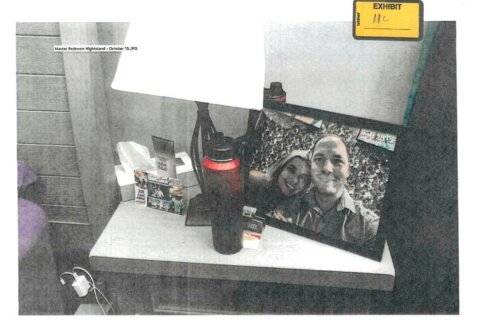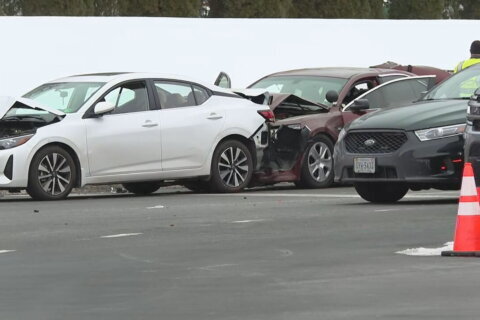WASHINGTON — As Fairfax County leaders prepare to take up new civilian oversight for police in the wake of the 2013 shooting of John Geer in the doorway of his Springfield home, the police department has released information about more recent use of force incidents and the racial disparities in whom that force is used against.
Of 539 use of force incidents investigated by at least one supervisor in 2015, a new report released late Monday shows 57 proceeded to administrative investigations. In one of those cases, a use of force violation was found, and the report shows that an oral reprimand was issued.
Police say the use of force in 2015 was predominantly against males, with just 89 of the 539 incidents involving females. The report says 282 of the incidents (52 percent) involved subjects police identified as white, 222 subjects identified as black (41 percent), 18 identified as Hispanic (4 percent) and 17 identified as Asian (3 percent).
Only 8 percent of Fairfax County’s 1.1 million residents are estimated to be black, 16 percent are estimated to be Hispanic and 63 percent are estimated to be white.
Reflecting the demographics of the department as a whole, the officers involved in use of force incidents were largely white men, representing 740 of the 985 officers involved in incidents. Of sworn Fairfax County police officers, 83 percent are white, 7 percent are black and 5 percent identify as Hispanic.
On Tuesday afternoon, the Board of Supervisors’ Public Safety Committee will take up recommendations for increased civilian oversight of the police department issued by a commission formed after a police officer shot and killed Geer and information in the case was slow to emerge.
The committee, which all board members typically attend, has a draft document before it that would create a new, independent police officer who would report to the Board of Supervisors in cases of police use of force that lead to serious injury or death, and a new civilian review panel that would respond to community concerns about “alleged incidents of abuse of authority.” The draft document would not endorse the recommendation for an ongoing police commission like the one formed in the wake of Geer’s death.
That draft is far from final, though, as several supervisors expressed concerns about some of the recommendations last week.
Supervisor John Cook, who chairs the Public Safety Committee, said the Tuesday meeting should focus on what the civilian oversight panel would be responsible for, and how members would be appointed.
In addition to members of the commission that made the recommendations, representatives from the National Association for Civilian Oversight of Law Enforcement are expected to be included in the meeting to offer advice.
Supervisor Pat Herrity was among those raising financial concerns about the cost of parallel oversight between the auditor and review commission.
“I’m trying to figure a way to get the transparency we’re looking for and the review we’re looking for without creating two new bureaucracies instead of one,” Herrity said at the board’s meeting last week.
In the separate police department report released Monday, the agency said the largest number of disciplinary actions last year were tied to operation of police vehicles. Only six officers resigned or were fired in connection with disciplinary actions: one for custody of property, one over ethics and integrity, one for insubordination and three over standard of conduct.
The most use of force reports came out of the Mount Vernon (87) and Mason districts (85), followed by the McLean District (64) and Criminal Investigations Bureau (61).
Separate from use of force incidents, the report also includes information on the recorded demographic breakdowns of “field contacts,” in which officers interact with people in the community in matters such as complaints, suspicious people or vehicles, or warning tickets.
In those instances, the department said, about two-thirds of the interactions were with males while one-third were with females. Two-thirds of the interactions were with people officers identified as white, 25 percent with people officers identified as black, 5 percent with people officers identified as Asian and 2 percent with people officers identified as Hispanic.







